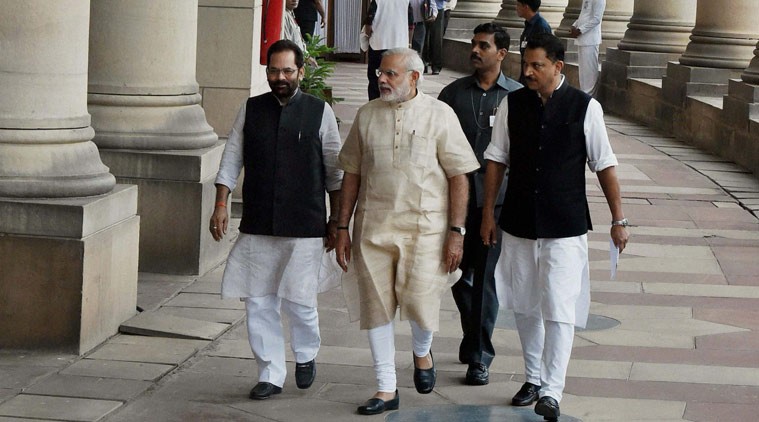
The word ‘special’ in Special Forces should be sufficient to understand that such forces are to be ‘primarily’ deployed on strategic tasks beyond national borders. There is also a tendency to mix them with airborne troops (paratroopers) who are trained for air induction but on landing perform infantry tasks, including holding ground, even though inside enemy territory.
Stephen P Cohen wrote in his book The Idea of Pakistan that “The task of Special Forces is the proxy application of force at low and precisely calculated levels, the objective being to achieve some political effect, not a battlefield victory".
This basic is ignored in India perhaps because not only do we not have a national security strategy, there is no national level concept for employment of Special Forces — both responsibility of the political hierarchy. Ignorance and inability to grasp the strategic environment, its setting, and compulsion under which such forces are employed are evident. But when the cross-border employment has been permitted, our Special Forces have performed admirably. This includes deployment of three Special Forces battalions when the Indian Peace Keeping Force was sent to Sri Lanka.
When US Seal Team Six killed Osama bin Laden deep inside Pakistan, questions were raised whether Indian Special Forces could have performed a similar operation. They could have provided India had the wherewithal to induct and extract them at the required spot.
Readers today are more knowledgeable about our Indian Special Forces with the publicity given to cross-border raids in Myanmar (2015) against insurgent camps, and in Pakistan-Occupied Kashmir (PoK) in September. These cross-border actions were not the first but politically overhyped. All raids are ‘surgical’, especially when air and artillery is not causing collateral damage. The expression ‘surgical strikes’ is, therefore, needless.
As a norm, little official information is released by militaries on Special Forces missions undertaken, given their covert nature and need for secrecy. Lacking such authoritative, precise information, journalists and film producers use imagination to reconstruct the deeds and daring, and speculate to picture the arduous training, planning and myriad aspects of the brilliantly executed plans.
This happens at the behest of politicians whose aim is self-aggrandisement for influencing the public, even at the cost of sacrificing secrecy. Such politicised depiction may be at variance to the actual happenings. The Bollywood movie Uri needs to be viewed in this context.
Sub-conventional war, including use of irregular forces, is part of larger hybrid war that is being waged world over, and which we have also been contending with. Conventional forces and diplomacy are inadequate response to sub-conventional threats, which we have been practising. That is why India has not been able to establish credible deterrence against Pakistan’s proxy war.
Political jingoism over the otherwise clinically executed raids in Myanmar and PoK is unwarranted since these were ‘reactions’ to a ghastly ambush in Chandel District of Manipur, and terror attack in Uri, respectively; these can hardly be classified ‘pro-active’ by any measure. Same is the case in Prime Minister Narendra Modi announcing free hand to army to seek ‘revenge’ for the Pulwama car-bombing. Revenge attacks are no recipe for coping with sub-conventional warfare. At best, this would result in more raids, which will not stymie Pakistan’s proxy war especially since government has been soft on the ‘enemy within’. For example, no country permits separatist on their soil as we allow Hurriyat separatists.
Successive Indian governments have failed to use the considerable Special Forces potential in the country. The response to sub-conventional war is sub-conventional war taken into enemy territory on sustained basis. Special Forces, as the nucleus of Special Operations Forces (SOF) have a major role in this, which does not imply operating in large numbers always since such response does not automatically imply physical attack.
A physical attack is only the extreme and potentially most dangerous expression of asymmetric warfare. The key lies in achieving strategic objectives through application of modest resources with the essential psychological element.
Post Operation ‘Parakaram’, we still fail to acknowledge that irregular forces cannot be deterred through conventional power. Cross border raids only have tactical value, but are of little deterrence value at strategic level. Security forces may eliminate few hundred terrorists annually in J&K but Pakistan has an endless supply, J&K youth are being radicalised, and it doesn’t hurt the Pakistani military.
We have been foolishly saying we want a strong and stable Pakistan but our enemies are exploiting our fault-lines sub-conventionally. We need to reverse the process and get hold of fault-lines of our enemies. Sub-conventional capacity is the currency of geopolitical power today, which we are afraid to use. The responsibility to plan sub-conventional war in enemy territory on continuous basis is not of the military but that of the political hierarchy, particularly the NSA, which they have been shirking till now. Taliban takeover of Afghanistan will make things even tougher for India. It is time the government wakes up.


.jpeg)

